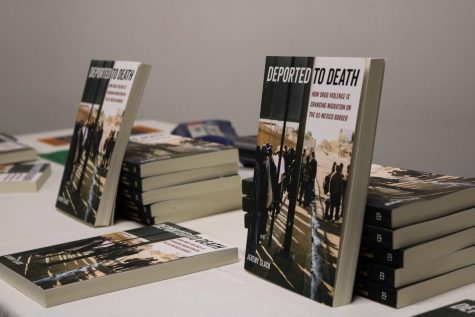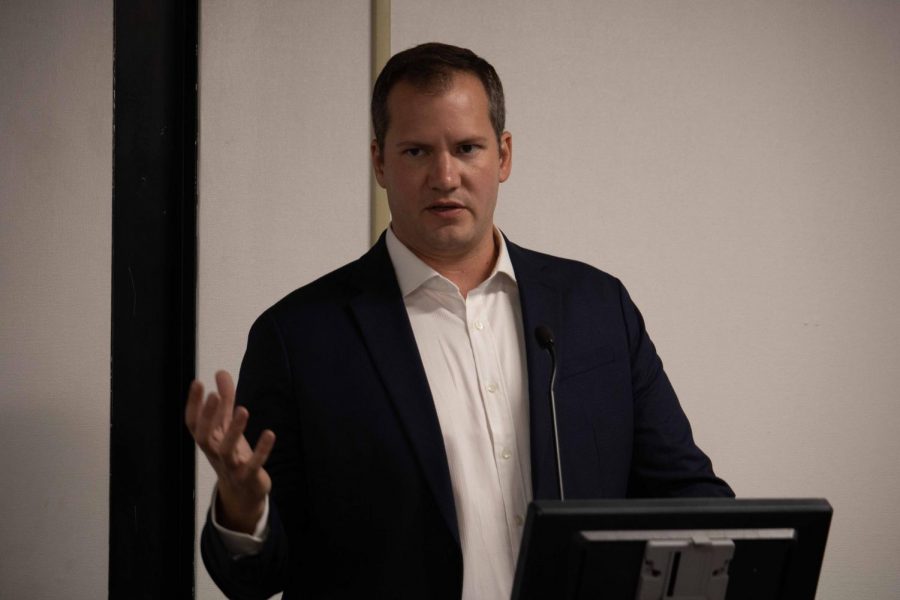Jeremy Slack, Ph.D., assistant professor of geography in the Department of Sociology and Anthropology at UTEP, presented his book “Deported to Death: How Drug Violence Is Changing Migration on the U.S.-Mexico Border” to a full audience on Thursday, Sept. 19 at the Bloomberg Auditorium in the University Library.
“I think we’re often stuck in a very blank map mindset where we see what happens on one side or we see what happens on the other side, and we don’t necessarily connect the two well enough,” Slack said during the presentation, referring to how an immigrant’s life after deportation from the U.S. is often ignored.
The book is based on Slack’s most recent research, in which he interviewed about 1,100 deported immigrants across six Mexican border cities to learn about the aftermath of deportation.
The high risk of violence and increased vulnerability to cartels are among the consequences that 40,000 immigrants face after arriving to Mexican cities they do not know following deportation, Slack said.
“The mass deportation of people from the United States to Mexico has exacerbated an already hyperviolent situation whereupon organized criminal groups and corrupt authorities prey upon deportees,” Slack read from his book during the presentation.
His new book detailed the experiences of these deported immigrants, such as the story of 46-year-old Jonathan. Originally from Hermosillo, Mexico, Jonathan arrived at the Mexican state of Tamaulipas after deportation, where he was targeted by the Zetas cartel to smuggle marijuana through the desert.
Director of the UTEP Center for Interamerican and Border Studies Josiah Heyman, Ph.D., intervened during the presentation to emphasize that the immigration policies referenced in the book are called “Migrant Protection Protocols” by the U.S. government.
“The idea that sending them back to wait in these border cities is some way of protecting them – is just absurd,” Slack said.
Slack also opposed the idea that migrants should be willing to suffer the consequences of detention and deportation because they automatically assume the risks that come with migrating.
“One can be afraid of their own country and also not like being in prison. Those two things aren’t mutually exclusive,” Slack said.
Professors, students and other members of the community were in attendance at the presentation.
“I thought it was really good. It touched me on a personal level because I had somebody who was, unfortunately, affected from the violence in 2010,” said Cassandra Vargas, a junior anthropology major at UTEP, referencing the wave of cartel-related violence in Ciudad Juárez, Mexico, that led it to be known as the most dangerous city in the world back in 2011.
Slack’s book is available in hardcover, paperback or eBook versions through the University of California Press at ucpress.edu.

Jeremy Slack’s “Deported to Death” is available for purchase at ucpress.edu.












